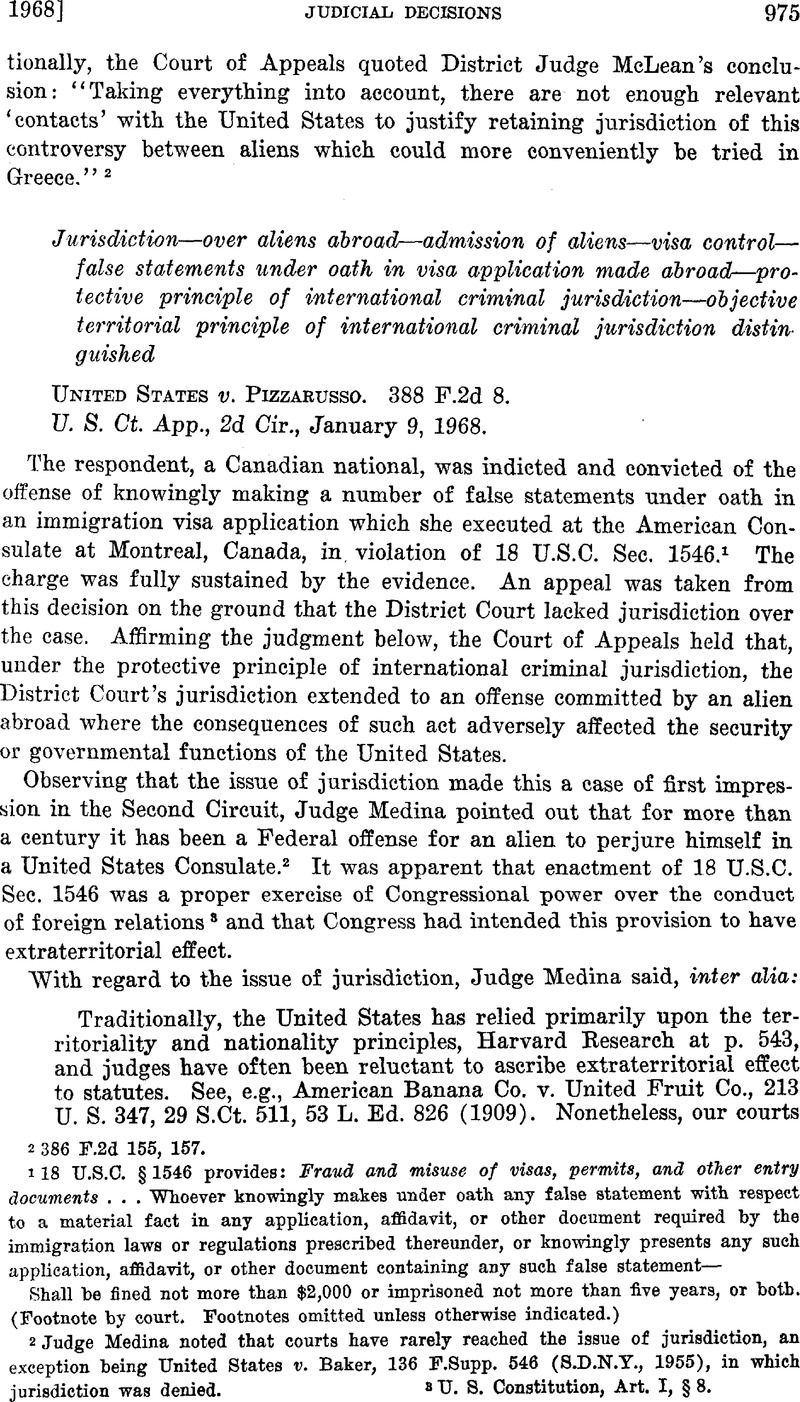No CrossRef data available.
Published online by Cambridge University Press: 28 March 2017

2 386 F.2d 155, 157.
1 18 U.S.C. §1546 provides: Fraud and misuse of visas, permits, and other entry documents … Whoever knowingly makes under oath any false statement with respect to a material fact in any application, affidavit, or other document required by the immigration laws or regulations prescribed thereunder, or knowingly presents any such application, affidavit, or other document containing any such false statement— Shall be fined not more than$2,000 or imprisoned not more than five years, or both. (Footnote by court. Footnotes omitted unless otherwise indicated.) 2 Judge Medina noted that courts have rarely reached the issue of jurisdiction, an exception being United States v. Baker, 136 F.Supp. 546 (S.D.N.Y., 1955), in which jurisdiction was denied.
3 U. S. Constitution, Art. I, § 8.
4 Judge Medina defined the protective principle of jurisdiction in the terms used in Restatement (Second) Foreign Relations Law, Section 33 (1965): a state “has jurisdiction to prescribe a rule of law attaching legal consequences to conduct outside its territory that threatens its security as a state or the operation of its governmental functions, provided the conduct is generally recognized as a crime under the law of states that have reasonably developed legal systems.“
5 Eocha v. United States, 288 F.2d 545 (9th Cir.), cert denied, 366 TT. S. 948, 81 S.Ct. 1902, 6 L. Ed.2d 1241 (1961) (footnote by court).
6 388 F.2d 8 at 10-11.